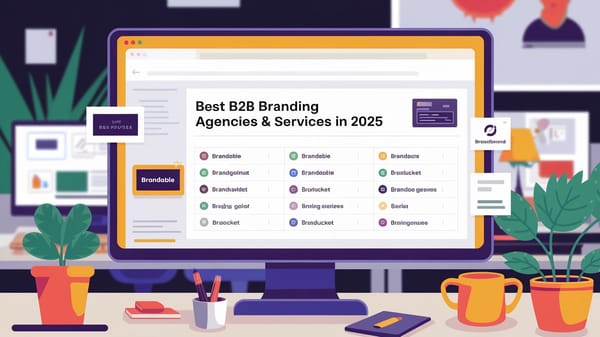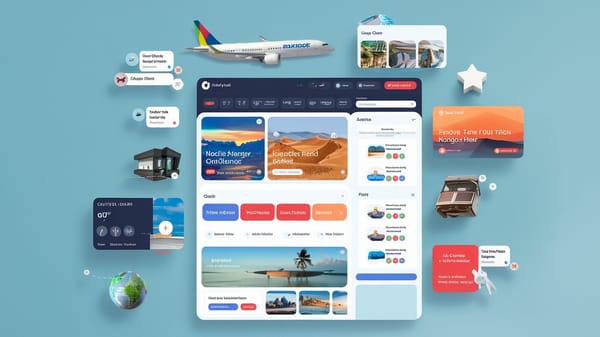The Pros and Cons of Outsourcing Lead Generation

In today's competitive business landscape, lead generation is a critical component of a successful marketing strategy. As companies strive to reach their target audiences and convert prospects into loyal customers, the decision to outsource lead generation has become increasingly relevant. Outsourcing this function can offer numerous advantages, such as cost savings, access to advanced technology, and expertise, but it also comes with potential drawbacks, including a loss of control and quality concerns.
Outsourcing lead generation involves partnering with external agencies or specialists to handle the process of identifying and nurturing potential customers. This approach can be particularly beneficial for businesses looking to reduce the financial commitments associated with maintaining an in-house team, such as office space, utilities, and recruitment costs. By leveraging external resources, companies can redirect savings towards core business activities, such as investing in new technologies or expanding market reach. For more insights, you can explore PrimeBPO's blog on outsourcing.
Moreover, outsourcing provides access to cutting-edge technologies and expertise that might be prohibitively expensive for smaller in-house teams. These technologies can automate tasks, optimize processes, and provide valuable insights, enabling businesses to implement lead generation strategies rapidly and effectively. This rapid implementation can be crucial for capitalizing on time-sensitive opportunities, as highlighted in Impasto's article on outsourcing lead generation.
However, the decision to outsource is not without its complexities. Companies may face challenges such as a loss of control over the lead generation process and potential quality concerns. Maintaining open and frequent communication with the outsourcing partner is essential to ensure alignment with business goals and to refine strategies based on feedback and performance analytics. For a balanced view of the pros and cons, Visionary Solutions Inc. provides a comprehensive analysis.
Ultimately, the choice between outsourcing and building an in-house lead generation team depends on a company's specific needs, resources, and strategic objectives. By carefully weighing the advantages and disadvantages, businesses can make informed decisions that align with their growth goals and market dynamics.
You can also visit Oncely.com to find more Top Trending AI Tools. Oncely partners with software developers and companies to present exclusive deals on their products. One unique aspect of Oncely is its “Lifetime Access” feature, where customers can purchase a product once and gain ongoing access to it without any recurring fees. Oncely also provides a 60-day money-back guarantee on most purchases, allowing customers to try out the products and services risk-free.
Oncely are hunting for the most fantastic AI & Software lifetime deals like the ones below or their alternatives:

Table of Contents
- Expertise and Experience
- Cost-Effectiveness
- Scalability and Flexibility
- Quick Implementation
- Focus on Core Business Activities
- Disadvantages of Outsourcing Lead Generation
- Loss of Control
- Communication Barriers
- Data Security and Privacy Concerns
- Hidden Costs
- Dependency on Third-Party Vendors
- Factors to Consider When Deciding to Outsource
- Evaluation of Cost Implications
- Quality and Expertise of the Service Provider
- Alignment with Business Goals and Culture
- Risk Management and Data Security
- Flexibility and Scalability of Services
Expertise and Experience
Outsourcing lead generation provides access to specialized expertise and experience that may not be available in-house. Agencies dedicated to lead generation are composed of professionals who are well-versed in the latest trends and techniques across various industries. This specialization allows them to implement strategies that are more likely to yield higher returns on investment (ROI) for lead generation efforts. According to Saleslion, outsourcing lead generation can generate 43% better results than in-house efforts. This improvement is attributed to the agencies' ability to focus solely on connecting businesses with potential clients who are most likely to convert, thereby enhancing the quality of leads.
Moreover, outsourcing partners bring invaluable knowledge to the table, allowing companies to benefit from their experience without the need to invest in extensive training for in-house teams. This expertise can lead to improved metrics and key performance indicators (KPIs), as agencies are equipped to handle the nuances of lead generation more effectively than a generalist in-house team (Artisan).
Cost-Effectiveness
Contrary to the common perception that outsourcing is expensive, it can actually be a cost-effective solution for lead generation. By leveraging the expertise and technology of specialized agencies, companies can eliminate the need for many in-house investments, such as recruitment, training, and maintaining a dedicated lead generation team. The total expenses per employee, which include salaries, taxes, office space, and other overheads, are often higher than the cost of outsourcing (Smart Insights).
When done correctly, outsourcing can pay for itself by improving vital metrics and reducing costs associated with in-house operations. This cost-effectiveness is particularly beneficial for startups or companies operating in rapidly evolving industries, where the ability to quickly adapt and scale is crucial (Artisan).
Scalability and Flexibility
One of the significant advantages of outsourcing lead generation is the ability to scale and adjust resources based on demand without the need to internally hire or train staff. Agencies specializing in lead generation can quickly ramp up or down their efforts to meet the changing needs of a business, providing a level of flexibility that is difficult to achieve with an in-house team (Artisan).
This scalability is particularly useful for businesses experiencing fluctuating demand or those in industries that require rapid adaptation to market changes. By outsourcing, companies can ensure that their lead generation efforts are aligned with their current business objectives without the burden of managing additional personnel or resources (Sage Marketing).
Quick Implementation
Outsourcing lead generation allows for faster implementation of campaigns compared to in-house efforts. Lead generation agencies have the time and resources to get campaigns up and running quickly, which is often a challenge for in-house teams that are already managing multiple responsibilities. This quick implementation can be crucial for businesses looking to capitalize on market opportunities or respond to competitive pressures in a timely manner (Artisan).
The ability to rapidly deploy lead generation strategies without the delays associated with internal processes can provide a competitive edge, enabling companies to focus on closing sales rather than spending time on the initial stages of lead generation (Smart Insights).
Focus on Core Business Activities
By outsourcing lead generation, companies can allow their sales and marketing teams to concentrate on core business activities. This shift in focus enables in-house teams to hone their skills in areas such as customer relationship management, strategic planning, and product development, rather than being bogged down by the time-consuming task of lead generation (Artisan).
With lead generation handled externally, sales representatives can dedicate more time to preparing for calls, fine-tuning marketing efforts, and enhancing their people skills. This focus on core competencies can lead to improved overall business performance and a more efficient allocation of resources (Sage Marketing).
Disadvantages of Outsourcing Lead Generation
Loss of Control
Outsourcing lead generation can lead to a significant loss of control over the processes and strategies used to acquire leads. When a company outsources this function, it often relinquishes control over the quality and type of leads generated. This can result in a misalignment between the leads generated and the company's target market or sales strategy. According to a study by Deloitte, 57% of companies reported that they experienced a loss of control over their outsourced functions, which can lead to inefficiencies and a decrease in lead quality.
Communication Barriers
Effective communication is crucial in lead generation, and outsourcing can introduce significant communication barriers. These barriers can arise from differences in time zones, language, and cultural understanding. For instance, a report by McKinsey highlights that communication issues are a common challenge in outsourcing, affecting 45% of companies. Miscommunications can lead to misunderstandings about lead requirements, resulting in leads that do not meet the company's criteria or expectations.
Data Security and Privacy Concerns
Outsourcing lead generation involves sharing sensitive customer data with third-party vendors, which can pose significant data security and privacy risks. The risk of data breaches increases when data is handled by external parties, potentially leading to financial losses and reputational damage. According to a Ponemon Institute report, 63% of data breaches are linked to third-party vendors. Companies must ensure that their outsourcing partners comply with data protection regulations such as GDPR or CCPA to mitigate these risks.
Hidden Costs
While outsourcing is often perceived as a cost-saving measure, it can entail hidden costs that may not be immediately apparent. These costs can include expenses related to vendor management, quality control, and potential rework if the leads generated do not meet the required standards. A study by the International Association of Outsourcing Professionals found that 25% of companies experienced higher-than-expected costs when outsourcing, primarily due to these hidden expenses. Companies must conduct thorough cost-benefit analyses to ensure that outsourcing remains financially viable.
Dependency on Third-Party Vendors
Relying on third-party vendors for lead generation can create a dependency that may be difficult to reverse. This dependency can limit a company's ability to adapt quickly to market changes or internal strategic shifts. If the vendor fails to deliver quality leads or goes out of business, the company may face significant disruptions in its lead generation efforts. A Gartner report indicates that 30% of companies have faced operational disruptions due to vendor dependency. To mitigate this risk, companies should develop contingency plans and maintain some level of in-house lead generation capability.
Factors to Consider When Deciding to Outsource
Evaluation of Cost Implications
When considering outsourcing lead generation, a primary factor is the cost implications. Outsourcing can often be more cost-effective than maintaining an in-house team, especially when considering the expenses associated with salaries, benefits, and training. According to a Deloitte survey, 59% of businesses cite cost reduction as a major reason for outsourcing. However, it is crucial to evaluate the total cost of outsourcing, which includes not only the vendor's fees but also potential hidden costs such as transition expenses, management oversight, and potential quality control issues. Companies must conduct a thorough cost-benefit analysis to ensure that the financial benefits outweigh the costs.
Quality and Expertise of the Service Provider
The quality of leads generated is directly linked to the expertise of the outsourcing partner. It is essential to assess the vendor's track record, industry experience, and the quality of their workforce. A study by Clutch highlights that 80% of businesses prioritize the quality of service over cost when selecting an outsourcing partner. Companies should request case studies, client testimonials, and performance metrics to gauge the vendor's capability. Additionally, understanding the vendor's approach to lead generation, including their use of technology and data analytics, can provide insights into their potential effectiveness.
Alignment with Business Goals and Culture
Outsourcing decisions should align with the company's strategic goals and corporate culture. A misalignment can lead to conflicts and inefficiencies. It is important to ensure that the outsourcing partner understands the company's objectives and values. This alignment can be assessed through initial meetings and ongoing communication. According to a Harvard Business Review article, successful outsourcing relationships are built on shared goals and mutual understanding. Companies should also consider the cultural fit, as differences in work ethics, communication styles, and business practices can impact the partnership's success.
Risk Management and Data Security
Data security is a critical concern when outsourcing lead generation, as it involves sharing sensitive customer information. Companies must evaluate the vendor's data protection policies and compliance with regulations such as GDPR or CCPA. A report by IBM indicates that the average cost of a data breach is $4.24 million, emphasizing the importance of robust security measures. Businesses should ensure that the outsourcing partner has strong cybersecurity protocols, including encryption, access controls, and regular security audits. Additionally, a clear understanding of the vendor's risk management strategies can help mitigate potential threats.
Flexibility and Scalability of Services
The ability to scale services up or down based on business needs is a significant advantage of outsourcing. Companies should assess the vendor's capacity to handle fluctuations in demand and their flexibility in adapting to changing business requirements. A Gartner report predicts that 70% of organizations will increase their use of outsourcing to gain flexibility. It is important to establish clear terms in the service level agreement (SLA) regarding scalability and flexibility. This includes understanding the vendor's processes for ramping up or down and any associated costs or timelines.
In summary, deciding to outsource lead generation involves a comprehensive evaluation of various factors, including cost implications, the expertise of the service provider, alignment with business goals, risk management, and the flexibility of services. Each of these factors plays a crucial role in determining the success of the outsourcing partnership and its impact on the company's overall performance.





